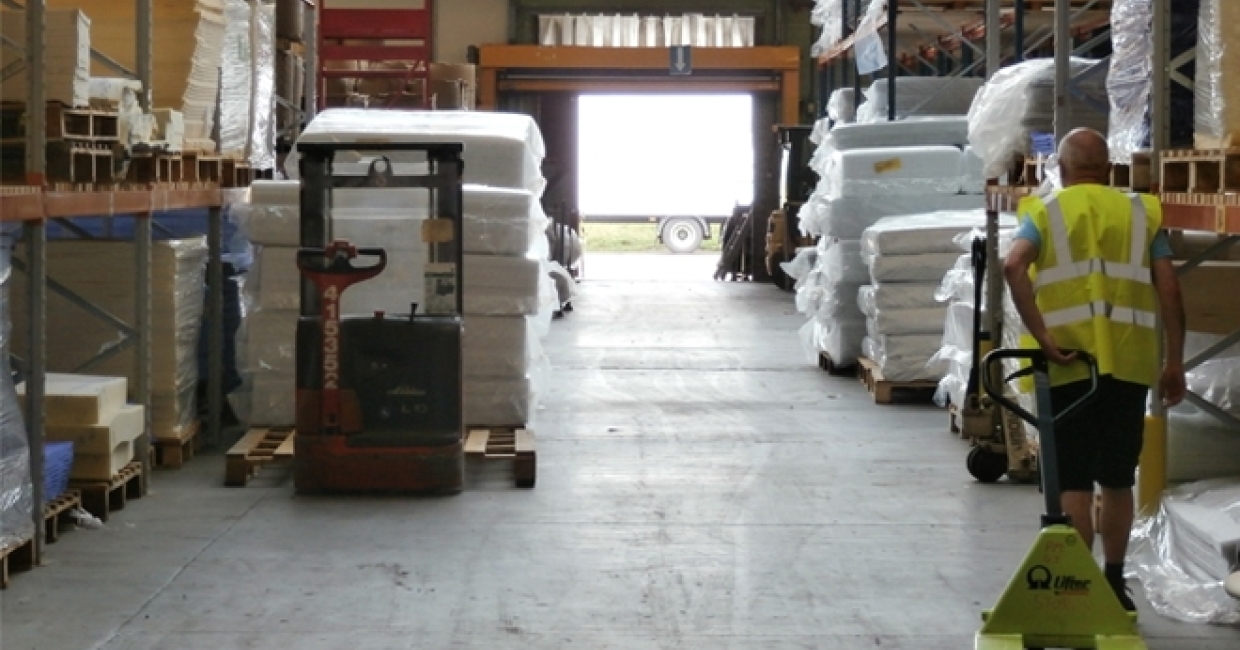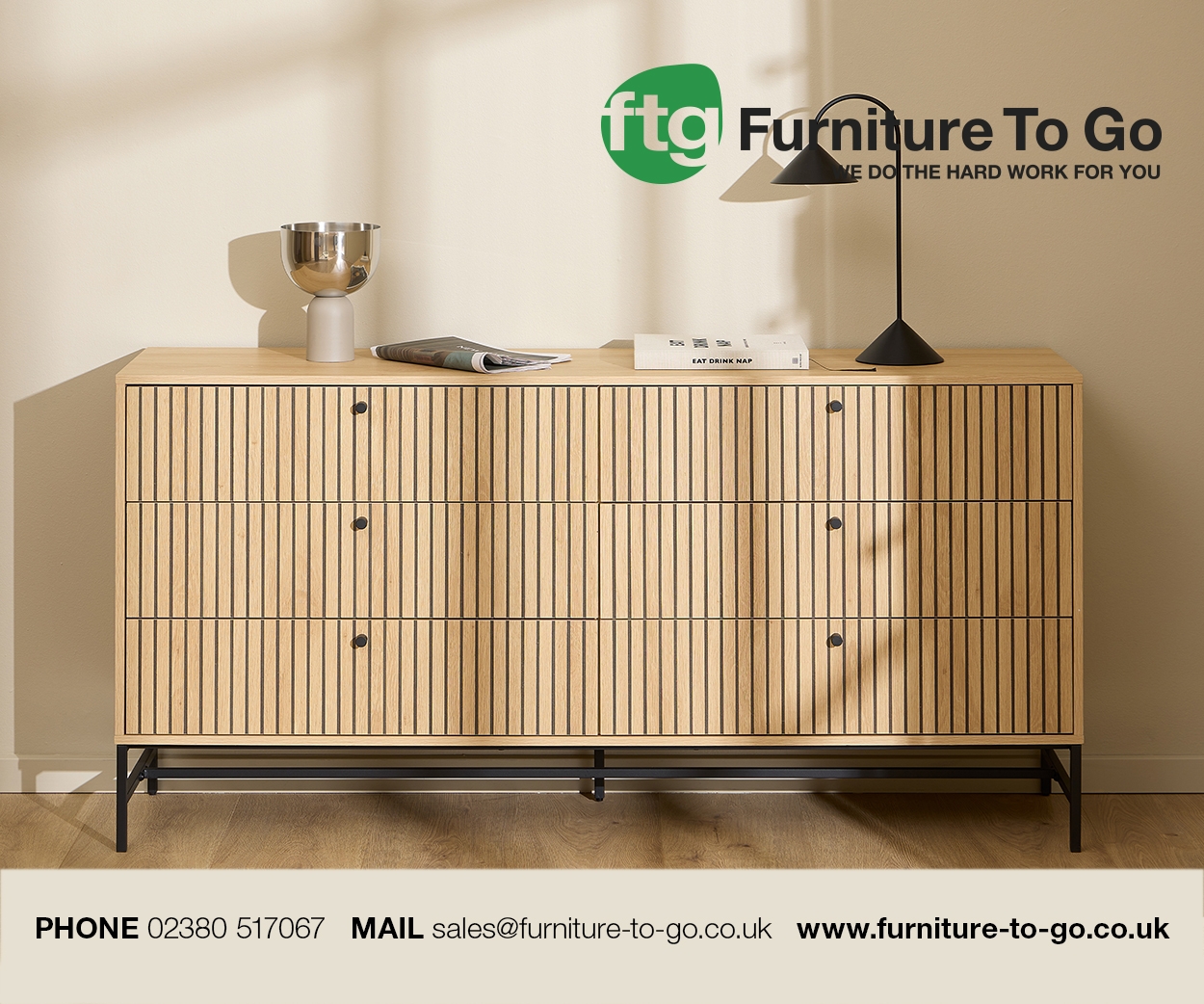Being owned by an investor doesn’t mean funding comes easily – so Steinhoff’s UK team discovered when they began redeveloping the former Hilding Anders factory in Huntingdon, Cambridgeshire, to meet modern demand. Furniture News visited the facility – now responsible for producing the Slumberland and Myer’s brands – to see how lean manufacturing principles have helped return the site to profit …
Steinhoff UK Bedding Group is set to reveal that its Huntingdon site made a seven-figure profit last year – an upswing of over £5.5m from the £4.5m loss recorded the previous year, a turnaround all the more remarkable given the state in which its previous owner left it.
Marketing, design and development director Richard Naylor puts it plainly: “The business had been decimated by Hilding Anders, and the effort necessary to rebuild it and safeguard the factory, brands and jobs here over the last three years has been considerable.”
Upon the acquisition, the factory – originally owned by Jonathan and Rodney Myers – comprised a mix of disparate manufacturing types, says Richard, and had fallen a long way behind the sector’s leaders.
With discerning customers including the likes of M&S, Mothercare and Laura Ashley, plus a raft of independents – not to mention own-label output, and the principal stockist, Steinhoff’s own Bensons for Beds, “the hardest of our customers to please, and our harshest critic, funnily enough” – Steinhoff UK Bedding Group had to make some serious changes.
One might think that the South African parent company’s vast financial heft would make this task relatively straightforward, but Richard says that the investor requires as much persuasion as an outside backer might, and the factory’s team had to work doubly hard to earn its support.
“Steinhoff are in it for the long term,” he says, “but you have to prove you’ll make money before you get the investment.”
To date, that investment has been considerable, including £1m spent on the building – most recently in the form of a 50% enlargement of the loading dock – and £400,000 in new machinery, from quilters to sewing machines.
The scale of the project is immense. Huntingdon turns out the bulk of Steinhoff’s UK bed product, whilst the more bespoke models of the independent-only Relyon brand are produced in the company’s more hands-on facility in Wellington, Somerset. Together, these factories are capable of producing up to 15,000 mattresses a week during peak periods.
The company’s mattresses, divans and headboards are generally made to order, necessitating a manufacturing process of epic proportions. Simply overcoming the physical limitations of Huntingdon required significant effort from the outset, says Richard.
“The effort necessary to rebuild it and safeguard the factory, brands and jobs here over the last three years has been considerable”
“With all manufacturing sites, you’d ideally like to start with a big rectangle – just put things in one end, and have them come out the other,” he says. “The reality is that this is a 1960’s building – you have to work with what you’ve got.”
Lean manufacturing efficiencies, brought to bear by general manager Mark Duff (formerly of Multiyork) and operations manager Matthew Richardson, have been crucial in maximising output potential. Most lean principles are common sense measures, admits Mark, but it takes an experienced and perceptive team to identify where money can be best spent.
Streamlining throughput – from material deliveries, storage and loading to waste extraction – with Matthew’s help, Mark is always looking out for an opportunity to implement better working practices, and smarter ways to utilise energy and space at the factory.
Developments include a new warehouse facility, which helps ensure consistent the maintenance of four-week lead times for all stockists (“the biggest mistake this industry makes is favouring the big customer”, says Richard).
The warehouse is principally used to store materials, which are sourced locally when possible, and always through British companies. “For every retailer these days, the pressure is immense for on-time, complete delivery,” says Richard. “We have raw material deliveries every day when it’s possible – it’s just another of the economies of scale available to us at this site, and it works for everyone involved.”
The factory layout has been thoroughly optimised to encourage product flow, and the bright, clean environment is up there with some of the best in the field. “We have an insight into the operating practives of some of the best European manufacturers,” says Richard – indeed, and by way of example, in July Steinhoff announced an alliance with European bedding leader Grupo Pikolin – “and are looking at implementing some of the more advanced automation practices here.”
High standards carry right through the plant, with a focus on ethical practices and sustainability. On top of the standards one would expect at a plc-owned facility, as a supplier to M&S, both Huntongdon and Wellington are subject to the retailer’s stringent Plan A audit, so there’s no room for slacking.
The commitment to sustainability means low-energy motors, FSC-certified timbers, dual-flush toilets, sustainable energy tarriffs, intelligent lighting systems, and a preference for natural materials.
The company’s work with retailers such as M&S ensures the same high standards benefit its independent customers – and it’s clear from the factory’s set-up that they enjoy a great deal of Steinhoff’s focus.
For example, supporting the ongoing plant developments is a new Mercedes distribition fleet, a £2.2m investment which includes 12 bespoke trailers with rear-steering axles, specifically designed to access those harder-to-reach delivery areas many independents are lumbered with.
Beforehand, thanks to their high emission ratings, some of the vehicles couldn’t even enter London – now Steinhoff boasts a branded fleet that’s one of the most fuel efficient in the industry, and plans to invest a further £1m in 31 additional trailers in 2017.
“We have an insight into the operating practives of some of the best European manufacturers”
This catalogue of developments make it easy to overlook a real asset that has survived the acquisition, and which continues to make the business’ success possible– its workforce.
Employing anything from 260 people during off-peak periods to upwards of 400 at full capacity, Huntingdon does not want for able workers. Populated by many long-serving individuals – one staffer in deliveries boasts 47 years of service, having followed in the footsteps of his father and grandfather, both of whom served the company for upwards of 40 years apiece.
Employee retention is taken seriously by the new senior management team, which has implemented mentoring programmes to help the most promising individuals rise through the ranks.
It’s clear that Huntingdon has benefited greatly from material investment in the last three years, but the significant turnaround that’s taken place here can be attributed as much to the wisdom and creativity of the on-site team.
The last 12 months in particular have seen the site become a healthy, profitable business – which would not have been possible without modernising it to such an extent. With Steinhoff’s house now in order, its customers can be even more confident in the quality of product and service on offer. This stable of valued bed brands is in good hands indeed.











